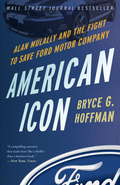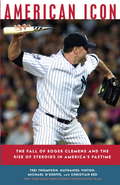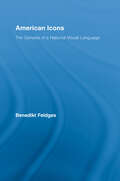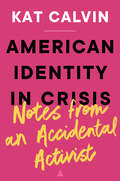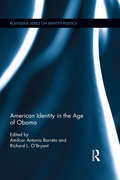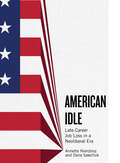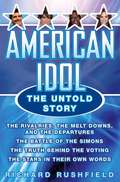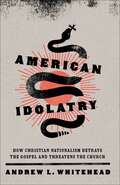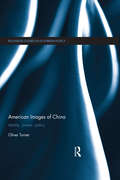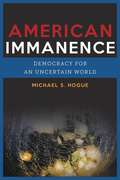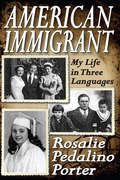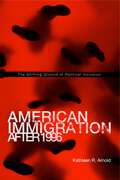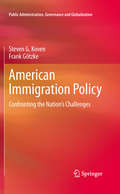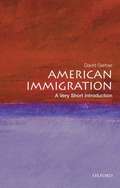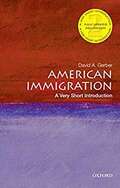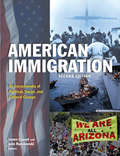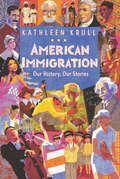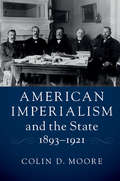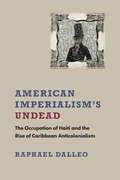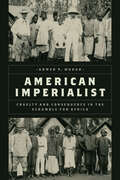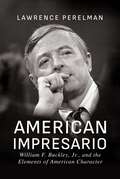- Table View
- List View
American Icon: Alan Mulally and the Fight to Save Ford Motor Company
by Bryce G. HoffmanTHE INSIDE STORY OF THE EPIC TURNAROUND OF FORD MOTOR COMPANY UNDER THE LEADERSHIP OF CEO ALAN MULALLY. At the end of 2008, Ford Motor Company was just months away from running out of cash. With the auto industry careening toward ruin, Congress offered all three Detroit automakers a bailout. General Motors and Chrysler grabbed the taxpayer lifeline, but Ford decided to save itself. Under the leadership of charismatic CEO Alan Mulally, Ford had already put together a bold plan to unify its divided global operations, transform its lackluster product lineup, and overcome a dysfunctional culture of infighting, backstabbing, and excuses. It was an extraordinary risk, but it was the only way the Ford family--America's last great industrial dynasty--could hold on to their company. Mulally and his team pulled off one of the greatest comebacks in business history. As the rest of Detroit collapsed, Ford went from the brink of bankruptcy to being the most profitable automaker in the world. American Icon is the compelling, behind-the-scenes account of that epic turnaround. On the verge of collapse, Ford went outside the auto industry and recruited Mulally--the man who had already saved Boeing from the deathblow of 9/11--to lead a sweeping restructuring of a company that had been unable to overcome decades of mismanagement and denial. Mulally applied the principles he developed at Boeing to streamline Ford's inefficient operations, force its fractious executives to work together as a team, and spark a product renaissance in Dearborn. He also convinced the United Auto Workers to join his fight for the soul of American manufacturing. Bryce Hoffman reveals the untold story of the covert meetings with UAW leaders that led to a game-changing contract, Bill Ford's battle to hold the Ford family together when many were ready to cash in their stock and write off the company, and the secret alliance with Toyota and Honda that helped prop up the American automotive supply base. In one of the great management narratives of our time, Hoffman puts the reader inside the boardroom as Mulally uses his celebrated Business Plan Review meetings to drive change and force Ford to deal with the painful realities of the American auto industry. Hoffman was granted unprecedented access to Ford's top executives and top-secret company documents. He spent countless hours with Alan Mulally, Bill Ford, the Ford family, former executives, labor leaders, and company directors. In the bestselling tradition of Too Big to Fail and The Big Short, American Icon is narrative nonfiction at its vivid and colorful best.
American Icon: The Fall of Roger Clemens and the Rise of Steroids in America's Pastime
by Teri Thompson Nathaniel Vinton Michael O'Keeffe Christian RedIt was an epic downfall. In twenty-four seasons pitcher Roger Clemens put together one of the greatest careers baseball has ever seen. Seven Cy Young Awards, two World Series championships, and 354 victories made him a lock for the Hall of Fame. But on December 13, 2007, the Mitchell Report laid waste to all that. Accusations that Clemens relied on steroids and human growth hormone provided and administered by his former trainer, Brian McNamee, have put Clemens in the crosshairs of a Justice Department investigation. Why did this happen? How did it happen? Who made the decisions that altered some lives and ruined others? How did a devastating culture of drugs, lies, sex, and cheating fester and grow throughout Major League Baseball's clubhouses? The answers are in these extraordinary pages. American Icon: The Fall of Roger Clemens and the Rise of Steroids in America's Pastime is about much more than the downfall of a superstar. While the fascinating portrait of Clemens is certainly at the center of the action, the book takes us outside the white lines and inside the lives and dealings of sports executives, trainers, congressmen, lawyers, drug dealers, groupies, a porn star, and even a murderer-- all of whom have ties to this saga. Four superb investigative journalists have spent years uncovering the truth, and at the heart of their investigation is a behind-the-scenes portrait of the maneuvering and strategies in the legal war between Clemens and his accuser, McNamee. This compelling story is the strongest examination yet of the rise of illegal drugs in America's favorite sport, the gym-rat culture in Texas that has played such an important role in spreading those drugs, and the way Congress has dealt with the entire issue. Andy Pettitte, Jose Canseco, Alex Rodriguez, and Chuck Knoblauch are just a few of the other players whose moving and sometimes disturbing stories are illuminated here as well. The New York Daily News Sports Investigative Team has written the definitive book on corruption and the steroids era in Major League Baseball. In doing so, they have managed to dig beneath the disillusion and disappointment to give us a stirring look at heroes who all too often live unheroic shadow lives.
American Icons: The Genesis of a National Visual Language (Routledge Research in Cultural and Media Studies)
by Benedikt FeldgesDespite the work that has been done on the power of visual communication in general, and about the social influence of television in particular, television’s relationship with reality is still something of a black box. Even today, the convention that the screen functions as a window on reality structures much of the production and reception of televisual narratives. But as reality ought to become history at one point, what are we to do with such windows on the past? Developing and applying a highly innovative approach to the modern picture, American Icons sets out to expose the historicity of icons, to reframe the history of the screen and to dissect the visual core of a medium that is still so poorly understood. Dismantling the aura of apparently timeless icons and past spectacles with their seductive power to attract the eye, this book offers new ways of seeing the mechanisms at work in our modern pictorial culture.
American Identity and the Politics of Multiculturalism
by David O. Sears Jack CitrinThe civil rights movement and immigration reform transformed American politics in the mid-1960s. Demographic diversity and identity politics raised the challenge of e pluribus unum anew, and multiculturalism emerged as a new ideological response to this dilemma. This book uses national public opinion data and public opinion data from Los Angeles to compare ethnic differences in patriotism and ethnic identity and ethnic differences in support for multicultural norms and group-conscious policies. The authors find evidence of strong patriotism among all groups and the classic pattern of assimilation among the new wave of immigrants. They argue that there is a consensus in rejecting harder forms of multiculturalism that insist on group rights but also a widespread acceptance of softer forms that are tolerant of cultural differences and do not challenge norms, such as by insisting on the primacy of English.
American Identity in Crisis: Notes from an Accidental Activist
by Kat CalvinA trailblazing activist’s passionate and incisive look at why she started a movement to ensure that 26 million Americans have access to the IDs they need to escape poverty and live healthy and productive livesAmerican Identity in Crisis weaves together three remarkable stories: the making of an activist in the wake of the 2016 presidential election; the fight against the onerous rules that are being used to keep vulnerable and targeted populations from participating in all facets of American life -from obtaining jobs and housing to going to the polls- and how we can solve a problem that impacts millions of American adults.Kat Calvin ties all of these threads together in profound ways. In American Identity in Crisis, she takes us on a cross-country tour as she and her team uncover one of the biggest secrets in America and learn how to solve it. We meet veterans, the unhoused, and senior citizens, and learn the story of the fierce advocate who insists on recognizing their humanity and seeing them as souls who are resilient and striving for change. Told in a voice that is strong and vulnerable; funny and fearless, confident and self-deprecating, American Identity in Crisis is a defense of human dignity and everyone’s right to have access to the pursuit of happiness.
American Identity in the Age of Obama (Routledge Series on Identity Politics)
by Amílcar Antonio Barreto Richard L. O’BryantThe election of Barack Obama as the 44th president of the United States has opened a new chapter in the country’s long and often tortured history of inter-racial and inter-ethnic relations. Many relished in the inauguration of the country’s first African American president — an event foreseen by another White House aspirant, Senator Robert Kennedy, four decades earlier. What could have only been categorized as a dream in the wake of Brown vs. Board of Education was now a reality. Some dared to contemplate a post-racial America. Still, soon after Obama’s election a small but persistent faction questioned his eligibility to hold office; they insisted that Obama was foreign-born. Following the Civil Rights battles of the 20th century hate speech, at least in public, is no longer as free flowing as it had been. Perhaps xenophobia, in a land of immigrants, is the new rhetorical device to assail what which is non-white and hence un-American. Furthermore, recent debates about immigration and racial profiling in Arizona along with the battle over rewriting of history and civics textbooks in Texas suggest that a post-racial America is a long way off. What roles do race, ethnicity, ancestry, immigration status, locus of birth play in the public and private conversations that defy and reinforce existing conceptions of what it means to be American? This book exposes the changing and persistent notions of American identity in the age of Obama. Amílcar Antonio Barreto, Richard L. O’Bryant, and an outstanding line up of contributors examine Obama’s election and reelection as watershed phenomena that will be exploited by the president’s supporters and detractors to engage in different forms of narrating the American national saga. Despite the potential for major changes in rhetorical mythmaking, they question whether American society has changed substantively.
American Idle: Late-Career Job Loss in a Neoliberal Era (Inequality at Work: Perspectives on Race, Gender, Class, and Labor)
by Annette Nierobisz Dana Sawchuk Dana Sawchuck Annette Marie NierobiszIn American Idle, sociologists Annette Nierobisz and Dana Sawchuk report their findings from interviews with sixty-two mostly white-collar workers who experienced late-career job loss in the wake of the Great Recession. Without the benefits of planned retirement or time horizons favorable to recouping their losses, these employees experience an array of outcomes, from hard falls to soft landings. Notably, the authors find that when reflecting on the effects of job loss, fruitless job searches, and the overall experience of unemployment, participants regularly called on the frameworks instilled by neoliberalism. Invoking neoliberal rhetoric, these older Americans deferred to businesses’ need to prioritize bottom lines, accepted the shift toward precarious employment, or highlighted the importance of taking initiative and maintaining a positive mindset in the face of structural obstacles. Even so, participants also recognized the incompatibility between neoliberalism’s “one-size-fits-all” solutions and their own situations; this disconnect led them to consider their experiences through competing frameworks and to voice resistance to aspects of neoliberal capitalism. Employing a life course sociology perspective to explore older workers’ precarity in an age of rising economic insecurity, Nierobisz and Sawchuk shed light on a new wrinkle in American aging.
American Idol: The Untold Story
by Richard RushfieldThe currency is fame, and it's bigger than money, more desired than power. Each season American Idol delivers on a promise whose epic scope is unparalleled in the annals of competition: to take an unknown dreamer from the middle of America and turn him or her into a genuine star. It has become not only the biggest show on television, but the biggest force in all of entertainment; its alumni dominate the recording charts and Broadway, win Academy Awards, and sweep up Grammys. In fact, American Idol has reshaped the very idea of celebrity. But it didn't start out that way. When the little singing contest debuted as a summer replacement on the U.S. airwaves, it was packed between reruns and low-cost filler. The promise that it would find America's next pop star produced a hearty round of guffaws from the country's media critics. Now, some ten years and millions of records later, no one is laughing. American Idol: The Untold Story chronicles the triumphs and travails, the harrowing backstage drama and the nail-biting onstage battles that built this revolutionary show. In this revealing book, veteran journalist Richard Rushfield goes deeper inside the circus than any reporter ever has. Candid interviews with Idol alumni, including Simon Fuller and Simon Cowell, shed new light on the show that changed the entertainment industry. And because Rushfield had full access to the people who created the show, starred in it, and kept it atop the pop culture pyramid, this book is the first to take Americans behind the curtain and tell what has really been happening on the world's most watched and speculated-about stage.
American Idolatry: How Christian Nationalism Betrays The Gospel And Threatens The Church
by Andrew L. WhiteheadAn expert on Christian nationalism identifies three areas—power, fear, and violence—where nationalism conflicts with core gospel beliefs and reveals its theological and spiritual costs in the church before pointing a way forward.
American Images of China: Identity, Power, Policy (Routledge Studies in US Foreign Policy)
by Oliver TurnerThe United States and China are arguably the most globally consequential actors of the early twenty first century, and look set to remain so into the foreseeable future. This volume seeks to highlight that American images of China are responsible for constructing certain truths and realities about that country and its people. It also introduces the understanding that these images have always been inextricable from the enactment and justification of US China policies in Washington, and that those policies themselves are active in the production and reproduction of imagery and in the protection of American identity when seemingly threatened by that of China. Demonstrating how past American images of China are vital to understanding the nature and significance of those which circulate today, Turner addresses three key questions: What have been the dominant American images of China and the Chinese across the full lifespan of Sino-US relations? How have historical and contemporary American images of China and the Chinese enabled and justified US China policy? What role does US China policy play in the production and reproduction of American images of China? Exploring and evaluating a wide-ranging variety of sources including films and television programmes, newspaper and magazine articles, the records and journals of politicians and diplomats and governmental documents including speeches and legal declarations this work will be of great interest to students and scholars of US foreign policy, American politics, China studies and international relations.
American Immanence: Democracy for an Uncertain World (Insurrections: Critical Studies in Religion, Politics, and Culture)
by Michael S. HogueThe Anthropocene marks the age of significant human impact on the Earth’s ecosystems, dramatically underscoring the reality that human life is not separate from nature but an integral part of it. Culturally, ecologically, and socially destructive practices such as resource extraction have led to this moment of peril. These practices, however, implicate more than industrial and economic systems: they are built into the political theology of American exceptionalism, compelling us to reimagine human social and political life on Earth. American Immanence seeks to replace the dominant American political tradition, which has resulted in global social, economic, and environmental injustices, with a new form of political theology, its dominant feature a radical democratic politics. Michael S. Hogue explores the potential of a dissenting immanental tradition in American religion based on philosophical traditions of naturalism, process thought, and pragmatism. By integrating systems theory and concepts of vulnerability and resilience into the lineages of American immanence, he articulates a political theology committed to democracy as an emancipatory and equitable way of life. Rather than seeking to redeem or be redeemed, Hogue argues that the vulnerability of life in the Anthropocene calls us to build radically democratic communities of responsibility, resistance, and resilience. American Immanence integrates an immanental theology of, by, and for the planet with a radical democratic politics of, by, and for the people.
American Immigrant: My Life in Three Languages
by Rosalie PorterImmigration is one of the most contentious issues in twenty-first-century America. In forty years, the American population has doubled from 150 to 300 million, about half of the increase due to immigration. Discussions involving legal and illegal status, assimilation or separatism, and language unity or multilingualism continue to spark debate. The battle to give five million immigrant children America's common language, English, and to help these students join their English-speaking classmates in opportunities for self-fulfillment continues to be argued. American Immigrant is part memoir and part account of Rosalie Pedalino Porter's professional activities as a national authority on immigrant education and bilingualism.Her career began in the 1970s, when she entered the most controversial arena in public education, bilingualism. This book chronicles the political movement Porter helped lead, one that succeeded in changing state laws in California, Arizona, and Massachusetts. Programs that had segregated Latino children by language and ethnicity for years, diminishing their educational opportunities, were removed with overwhelming public support. New English-language programs in these states are reporting improved academic achievement for these students.This book is also Porter's testament to the boundless opportunities for women in the United States, and to the unique blending of ethnicities and religions and races into harmonious families, her own included, that continues to be a true strength of the United States Porter examines women's roles, beginning in the 1940s and continuing through the millennium, from the vantage point of someone who grew up in a working-class, male-dominated family. She explores the emotional price exacted by dislocation from one's native land and traditions; traveling and living in the Middle East, Europe, and Asia; and the evolving character of marriage and family in twenty-first-century America.
American Immigration After 1996: The Shifting Ground of Political Inclusion
by Kathleen R. ArnoldFew topics generate as much heated public debate in the United States today as immigration across our southern border. Two positions have been staked out, one favoring the expansion of guest-worker programs and focusing on the economic benefits of immigration, and the other proposing greater physical and other barriers to entry and focusing more on the perceived threat to national security from immigration. Both sides of this debate, however, rely in their arguments on preconceived notions and unexamined assumptions about assimilation, national identity, economic participation, legality, political loyalty, and gender roles. In American Immigration After 1996, Kathleen Arnold aims to reveal more of the underlying complexities of immigration and, in particular, to cast light on the relationship between globalization of the economy and issues of political sovereignty, especially what she calls “prerogative power” as it is exercised by the U.S. government.
American Immigration After 1996: The Shifting Ground of Political Inclusion (G - Reference, Information and Interdisciplinary Subjects)
by Kathleen R. ArnoldFew topics generate as much heated public debate in the United States today as immigration across our southern border. Two positions have been staked out, one favoring the expansion of guest-worker programs and focusing on the economic benefits of immigration, and the other proposing greater physical and other barriers to entry and focusing more on the perceived threat to national security from immigration. Both sides of this debate, however, rely in their arguments on preconceived notions and unexamined assumptions about assimilation, national identity, economic participation, legality, political loyalty, and gender roles. In American Immigration After 1996, Kathleen Arnold aims to reveal more of the underlying complexities of immigration and, in particular, to cast light on the relationship between globalization of the economy and issues of political sovereignty, especially what she calls “prerogative power” as it is exercised by the U.S. government.
American Immigration Policy: Confronting the Nation's Challenges (Public Administration, Governance and Globalization #1)
by Steven G. Koven Frank GötzkeThe mission of this book is to counter the apocalyptic vision of the American "invasion" with a more balanced account of the consequences of immigration. The book will examine how the United States has dealt with immigration through enactment of various public policies over time. It will approach the issue from a political, economic and cultural perspective with an emphasis on the qualitative, positive contributions of immigrants. The goal of the book is to provide some individual depth to the larger discussion of immigration that typically is carried out at the "macro" level. It argues that immigration policy is cyclical, ranging from very open to very closed borders. Moreover, it asserts that it is difficult to measure the heterogeneous contributions of immigrants and therefore cost-benefit type assessments of immigration are limited. Case studies of how individual immigrants contribute to culture, politics or economic development of the United States offset empirical studies. The book will review previous immigration policy, data related to economic costs of immigration, literature relevant to the question of the dilution or preservation of "American culture", and immigration policies of other Western nations. The book will look at alternative perspectives on integration including an Americanization, Anglo-conformity perspective, a new American, melting pot perspective, and the cultural pluralism perspective. These perspectives in turn influence the degree to which specific options such as guest workers, amnesty, specialized skill, family unification, border enforcement, employer sanctions or political asylum are prioritized. The combination of rigorous data analysis and engaging, qualitative narrative make this book's contribution to the debate on immigration policy in the United States unique.
American Immigration Today: Pressures, Problems, Policies
by Judith BentleyDiscusses patterns of immigration into the United States and the ethical, political, and economic issues related to American immigration laws and policies.
American Immigration: A Very Short Introduction
by David GerberAmericans have come from every corner of the globe, and they have been brought together by a variety of historical processes--conquest, colonialism, the slave trade, territorial acquisition, and voluntary immigration. A thoughtful look at immigration, anti-immigration sentiments, and the motivations and experiences of the migrants themselves, this book offers a compact but wide-ranging look at one of America's persistent hot-button issues. Historian David Gerber begins by examining the many legal efforts to curb immigration and to define who is and is not an American, ranging from the Naturalization Law of 1795 (which applied only to "free-born white persons") to the Chinese Exclusion Act of 1882, the Emergency Quota Act of 1921, and the reform-minded Immigration and Nationality Act of 1965, which opened the door to millions of newcomers, the vast majority from Asia and Latin America. The book also looks at immigration from the perspective of the migrant--farmers and industrial workers, mechanics and domestics, highly trained professionals and small-business owners--who willingly pulled up stakes for the promise of a better life. Throughout, the book sheds light on the relationships between race and ethnicity in the life of these groups and in the formation of American society, and it stresses the marked continuities across waves of immigration and across different racial and ethnic groups. A fascinating and even-handed historical account, this book puts into perspective the longer history of calls for stronger immigration laws and the on-going debates over the place of immigrants in American society. About the Series: Combining authority with wit, accessibility, and style, Very Short Introductions offer an introduction to some of life's most interesting topics. Written by experts for the newcomer, they demonstrate the finest contemporary thinking about the central problems and issues in hundreds of key topics, from philosophy to Freud, quantum theory to Islam.
American Immigration: A Very Short Introduction (Very Short Introductions)
by David A. GerberAmericans have come from every corner of the globe, and they have been brought together by a variety of historical processes--conquest, colonialism, the slave trade, territorial acquisition, and voluntary immigration. In this Very Short Introduction, historian David A. Gerber captures the histories of dozens of American ethnic groups over more than two centuries and reveals how American life has been formed in significant ways by immigration. He discusses the relationships between race and ethnicity in the life of these groups and in the formation of American society, as well as explaining how immigration policy and legislation have helped to form those relationships. Moreover, by highlighting the parallels that contemporary patterns of immigration and resettlement share with those of the past - which Americans now generally regard as having had positive outcomes - the book offers an optimistic portrait of current immigration that is at odds with much present-day opinion. Newly updated, this book speaks directly to the ongoing fears of immigration that have fueled the debate about both illegal immigration and the need for stronger immigration laws and a border wall.
American Immigration: An Encyclopedia of Political, Social, and Cultural Change
by James Ciment John RadzilowskiThoroughly revised and expanded, this is the definitive reference on American immigration from both historic and contemporary perspectives. It traces the scope and sweep of U.S. immigration from the earliest settlements to the present, providing a comprehensive, multidisciplinary approach to all aspects of this critically important subject.Every major immigrant group and every era in U.S. history are fully documented and examined through detailed analysis of social, legal, political, economic, and demographic factors. Hot-topic issues and controversies - from Amnesty to the U.S.-Mexican Border - are covered in-depth. Archival and contemporary photographs and illustrations further illuminate the information provided. And dozens of charts and tables provide valuable statistics and comparative data, both historic and current. A special feature of this edition is the inclusion of more than 80 full-text primary documents from 1787 to 2013 - laws and treaties, referenda, Supreme Court cases, historical articles, and letters.
American Immigration: Our History, Our Stories
by Kathleen KrullAward-winning author Kathleen Krull takes an in-depth historical look at immigration in America—with remarkable stories of some of the immigrants who helped build this country. With its rich historical text, fascinating sidebars about many immigrants throughout time, an extensive source list and timeline, as well as captivating photos, American Immigration will become a go-to resource for every child, teacher, and librarian discussing the complex history of immigration.America is a nation of immigrants. People have come to the United States from around the world seeking a better life and more opportunities, and our country would not be what it is today without their contributions. From writers like Chimamanda Ngozi Adichie, to scientists like Albert Einstein, to innovators like Elon Musk, this book honors the immigrants who have changed the way we think, eat, and live. Their stories serve as powerful reminders of the progress we’ve made, and the work that is still left to be done.
American Imperial Pastoral: The Architecture of US Colonialism in the Philippines
by Rebecca Tinio MckennaIn 1904, renowned architect Daniel Burnham, the Progressive Era urban planner who famously “Made No Little Plans,” set off for the Philippines, the new US colonial acquisition. Charged with designing environments for the occupation government, Burnham set out to convey the ambitions and the dominance of the regime, drawing on neo-classical formalism for the Pacific colony. The spaces he created, most notably in the summer capital of Baguio, gave physical form to American rule and its contradictions. In American Imperial Pastoral, Rebecca Tinio McKenna examines the design, construction, and use of Baguio, making visible the physical shape, labor, and sustaining practices of the US’s new empire—especially the dispossessions that underwrote market expansion. In the process, she demonstrates how colonialists conducted market-making through state-building and vice-versa. Where much has been made of the racial dynamics of US colonialism in the region, McKenna emphasizes capitalist practices and design ideals—giving us a fresh and nuanced understanding of the American occupation of the Philippines.
American Imperialism and the State, 1893–1921
by Moore Colin D.How did the acquisition of overseas colonies affect the development of the American state? How did the constitutional system shape the expansion and governance of American empire? American Imperialism and the State offers a new perspective on these questions by recasting American imperial governance as an episode of state building. Colin D. Moore argues that the empire was decisively shaped by the efforts of colonial state officials to achieve greater autonomy in the face of congressional obstruction, public indifference and limitations on administrative capacity. Drawing on extensive archival research, the book focuses principally upon four cases of imperial governance - Hawai'i, the Philippines, the Dominican Republic and Haiti - to highlight the essential tension between American mass democracy and imperial expansion.
American Imperialism's Undead: The Occupation of Haiti and the Rise of Caribbean Anticolonialism (New World Studies)
by Raphael DalleoAs modern Caribbean politics and literature emerged in the first half of the twentieth century, Haiti, as the region's first independent state, stood as a source of inspiration for imagining decolonization and rooting regional identity in Africanness. Yet at precisely the same moment that anticolonialism was spreading throughout the Caribbean, Haiti itself was occupied by U.S. marines, a fact that regional political and cultural histories too often overlook. In American Imperialism's Undead, Raphael Dalleo examines how Caribbean literature and activism emerged in the shadow of the U.S. military occupation of Haiti (1915-34) and how that presence influenced the development of anticolonialism throughout the region. The occupation was a generative event for Caribbean activists such as C. L. R. James, George Padmore, and Marcus and Amy Jacques Garvey as well as for writers such as Claude McKay, Eric Walrond, and Alejo Carpentier. Dalleo provides new ways of understanding these luminaries, while also showing how other important figures such as Aimé Césaire, Arturo Schomburg, Claudia Jones, Frantz Fanon, Amy Ashwood Garvey, H. G. De Lisser, Luis Palés Matos, George Lamming, and Jean Rhys can be contextualized in terms of the occupation. By examining Caribbean responses to Haiti's occupation, Dalleo underscores U.S. imperialism as a crucial if unspoken influence on anticolonial discourses and decolonization in the region. Without acknowledging the significance of the occupation of Haiti, our understanding of Atlantic history cannot be complete.
American Imperialist: Cruelty and Consequence in the Scramble for Africa
by Arwen P. MohunThis biography of “African explorer” Richard Dorsey Mohun, written by one of his descendants, reveals how American greed and state power helped shape the new imperial order in Africa. Richard Dorsey Mohun spent his career circulating among the eastern United States, the cities and courts of Europe, and the African continent, as he served the US State Department at some points and King Leopold of Belgium at others. A freelance imperialist, he implemented the schemes of American investors and the Congo Free State alike. Without men like him, Africa’s history might have unfolded very differently. How did an ordinary son of a Washington bookseller become the agent of American corporate greed and European imperial ambition? Why did he choose to act in ways that ranged from thoughtless and amoral to criminal and unforgivable? With unblinking clarity and precision, historian Arwen P. Mohun interrogates the life and actions of her great-grandfather in American Imperialist. She seeks not to excuse the man known as Dorsey but to understand how individual ambition and imperial lust fueled each other, to catastrophic ends. Ultimately, she offers a nuanced portrait of how her great-grandfather’s pursuit of career success and financial security for his family came at a tragic cost to countless Africans.
American Impresario: William F. Buckley, Jr., and the Elements of American Character
by Lawrence PerelmanIn 1994, William F. Buckley, Jr., the conservative icon, received a letter from an eighteen-year-old aspiring pianist by the name of Lawrence Perelman, the son of Soviet Jewish immigrants. Buckley&’s response sparked a remarkable cross-generational friendship during which Perelman learned of the timeless elements of Buckley&’s character, and the central role of classical music in Buckley&’s American vision.Lawrence Perelman, an eighteen-year-old aspiring pianist and son of Soviet Jewish immigrants, wrote a letter to William F. Buckley, Jr., the conservative icon, in 1994. A remarkable cross-generational friendship was sparked by Buckley&’s response. During their friendship Perelman would go on to learn of the timeless elements of Buckley&’s character and the central role of classical music in Buckley&’s American vision. In 2025, the 100th anniversary of Buckley&’s birth, this book delves into some of Buckley&’s virtues which Perelman witnessed firsthand and argues that those virtues can transform the fabric of America&’s character. Their friendship spanned from 1995 to February 27, 2008, the day Buckley passed away in his Connecticut home while Perelman practiced piano in a nearby room for a private recital that evening for Buckley and friends that would never happen. American Impresario is a portrait of Buckley, the impresario of the conservative movement, man of faith, Cold Warrior, bulwark against Anti-Semitism, Renaissance man, musician, and mentor to countless people who continue their work today. This book will inspire readers, both young and old, to emulate Buckley&’s virtues, including a return to civil discourse, anonymous philanthropy, faith, patriotism and fostering relationships between mentor and protégé, as part of a goal to reweave the fabric of our nation&’s character.
